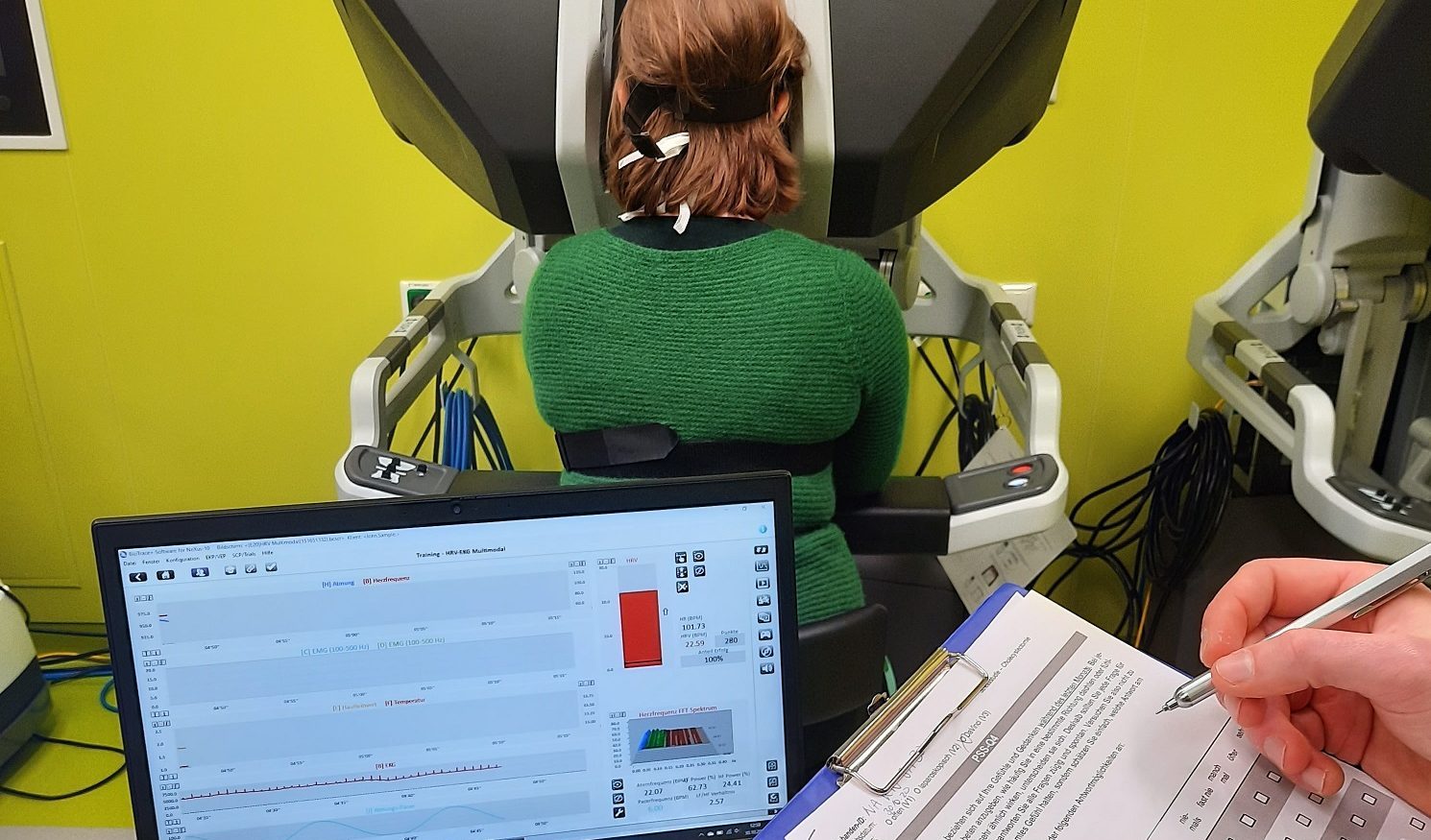
Development of a standardized Tool-Box for the assessment of the stress-physiological consequences of digitalization for medical practitioners |
Medical Need
Previous research has shown that medical practitioners are disproportionately often affected by chronic work stress and its associated psychological (e.g. burnout) and physiological (e.g. cardiovascular diseases) health consequences. The digital transformation of the health care sector was thought to reduce common stressors in every day hospital routines. However, initial research on digitalization and stress in medical practitioners suggest an elevation rather than a reduction of chronic stress. In order to ensure the implementation of stress reducing digital transformations, methodologically sound research designs are needed to identify stress-relevant factors of digitalization processes.
The aim of the present project is the development and validation of a psychophysiological methodological Tool-Box, based on reliable and valid assessed empirical pilot data, which enables a standardized evaluation of stress-associated consequences of digital transformation within the health care sector.
Digitalization, chronic stress, Burnout, psychophysiological assessment
Nature, Scientific Reports, 2022: Determining the direction of prediction of the association between parasympathetic dysregulation and exhaustion symptoms.
International Journal of Environmental Research and Public Health, Vol. 17, Issue 7 (2022): The Relationship between Flow Experience and Burnout Symptoms: A Systematic Review
Hemocompatibility of Biomaterials for Clinical Applications; Blood-Biomaterials Interactions, 163-190 (2018): Coatings for biomaterials to improve hemocompatibility.
Critical care. 2013;17 (5):R261: Short-term effects of noisy pressure support ventilation in patients with acute hypoxemic respiratory failure.
StreCov: Impact of the COVID pandemic on physicians’ psychophysiological stress levels.
Physicians can participate in the study here.
Stress Measurement Toolbox
In the video is explained, how to use the tool box.
Abstract |
Even though the numbers of scientific publications regarding digitalization processes within the medical sector has seen a sharp rise, the consequences of digital transformation on the stress load of clinical practitioners has been largely ignored. This is quite surprising, keeping in mind that clinical practitioners are more frequently confronted with chronic work stress and its consequences for mental and physical health (e.g. burnout, cardiovascular disease) compared to the average of all employees in Germany.
The few exciting studies suggest that digital transformations are associated with an elevation rather than a reduction in work stress. The reliability of these studies is, however, limited, since there is no standardized and validated methodological tool, which enables the examination of psychophysiological changes in stress load associated with digitalization processes. Therefore, the identification of objectively particularly stressful (e.g. overstimulation) respectively relieving factors (e.g. elimination of certain organizational activities) within digital transformation processes is hindered. Considering these empirically identified relevant factors would be of special relevance for the successful design of processes for the implementation of digital infrastructure.
Therefore, the present project set out to close this research gap, by developing and validating a methodological Tool Box for a user-independent application in field research. Thereby, in contrast to previous studies, the present project draws back on a multi-method research approach. First, in contrast to previous studies, we apply multiple study designs, such as surveys, qualitative interviews, and quasi-experimental designs. Second, we use multiple stress markers such as questionnaires, objective surveillance sheets, and biological markers (eg, heart rate variability, hair cortisol). Third, the present project is one of the first to collect relevant longitudinal data directly during the actual work of the clinical practitioners, before, during and after the respective digital transformation process.

